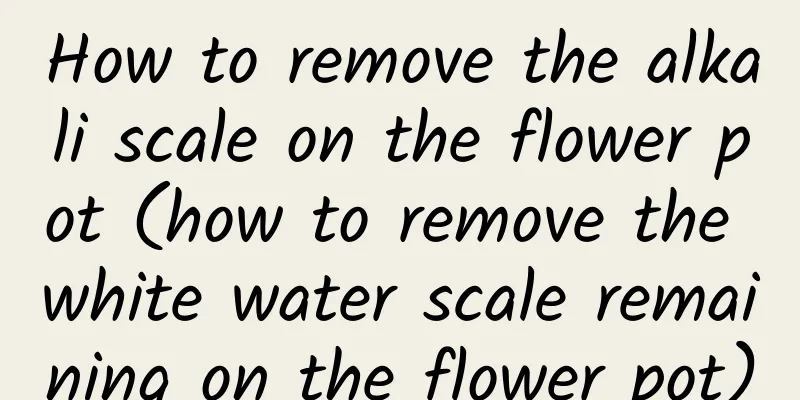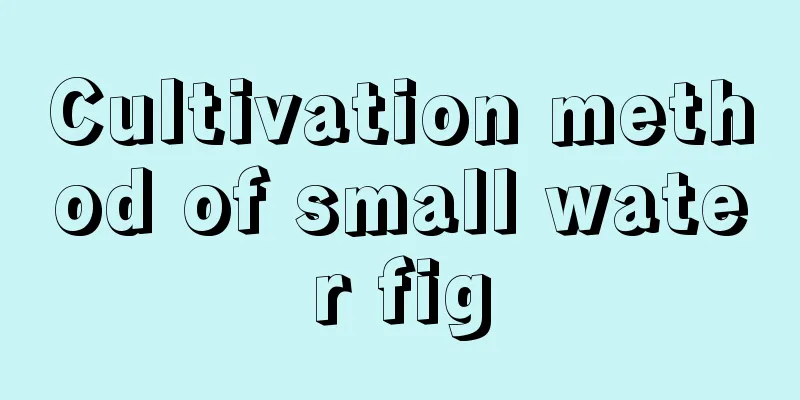How to remove the alkali scale on the flower pot (how to remove the white water scale remaining on the flower pot)

(1) Use edible vinegar to remove alkaliClean the soil in the flowerpot first, and then spray the vinegar on the inner and outer walls of the flowerpot, especially at the bottom holes and outer wall holes of the flowerpot for orchids. Spray more, especially the sediment at the bottom. After staying for 2 to 3 minutes, use a steel wool dipped in warm water to scrub the saline and alkaline substances attached to the basin wall, bottom holes, air holes, etc. to remove them. (2) Use physical methods to remove white water scaleFirst clean the dirt inside and outside the flowerpot, place the flowerpot in the sun for 20 to 30 minutes to dry the saline and alkaline substances on the wall of the pot, and then use fine sandpaper to wipe off the saline and alkaline substances. Or you can directly use a steel wool to wipe off the salt and alkali on the outer wall of the flower pot. Orchid lovers should be reminded that the outer wall of the purple clay pot should not be wiped too hard to avoid damaging the pot wall and affecting the ornamental value. (3) Use detergent to scrub white salt and alkaliThe method is: first clean the dirt on the inner and outer walls of the flower pot, then spray some detergent on the wall of the flower pot, and then wipe the flower pot with a soft cloth dipped in detergent. After repeated scrubbing, some of the saline and alkaline substances stuck to the basin wall will be cleaned off. But if you want to completely remove it, you need to use acetic acid to remove it. How to prevent alkaline objects from adhering to the basin wall1. In the northern region, for home potted plants, since the tap water is alkaline, a small amount of 500-fold diluted ferrous sulfate should be regularly applied when watering the flowers, or a few drops of salt-free rice vinegar should be added to the water. It can not only improve the alkalinity of the potting soil, making it acidic, and reduce or avoid alkaline objects in the water attaching to the pot walls and other places through watering, but also make the leaves of acid-loving flowers and trees bright green and grow better. 2. When fertilizing flowers and trees, acidic or physiologically acidic fertilizers should be used. Fertilizers such as ammonium bicarbonate and wood ash are alkaline fertilizers and should not be used for flowers and trees that prefer acidity. Fermented organic fertilizers are more reliable than inorganic fertilizers. For example, using fermented rice water to water flowers is a good fertilizer for flowers, which can prevent alkaline substances from damaging the walls of the pots. |
Recommend
How to propagate blue flower
Cutting propagation of blue flower dandelion Cutt...
How many times can ice plant be planted in a year and how long does it take to harvest?
How many times a year is ice plant planted? Ice p...
How to propagate Gloxinia flowers and precautions
How to propagate Gloxinia flowers There are four ...
How to prevent and treat common diseases of chrysanthemum
Black spot symptom As long as the disease harms t...
The most fragrant flowers for indoor potted plants
1. Jasmine There are many varieties of jasmine, m...
How to care for potted mandsura
Soil requirements Datura likes warm, humid and su...
The difference between green chrysanthemum and duckweed
1. The difference between leaves The leaves of gr...
When is the best month to plant mustard tuber and when is it harvested?
Mustard tuber planting season The planting time o...
How to take cuttings of blue flower dandelion
Illustration of blue flower Dan Start cuttings on...
How and when to plant broad beans
Broad bean planting time and month Broad beans ca...
How to grow Chrysanthemi orchid
1. Soil It usually grows better in soil containin...
How much is the yield of sweet potato per mu?
Sweet potato yield per mu Sweet potato is a very ...
When is the best time to repot Begonia
Begonia repotting time Begonias grow in pots for ...
How to propagate colored calla lilies? Can they be divided by cutting bulbs?
1. Division propagation The reproduction of color...
The efficacy and function of Clematis
The efficacy and function of Clematis It has cert...









